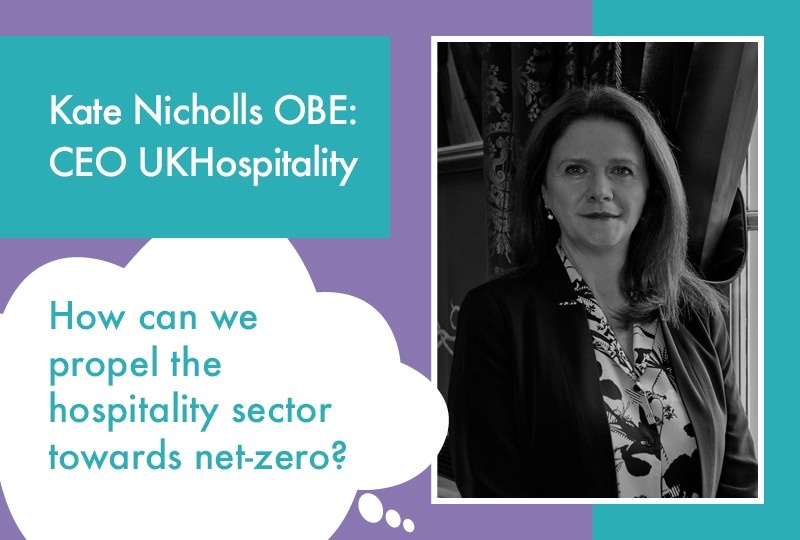Now, more than ever, the direction of travel is clear – consumers are demanding action on sustainability.
This makes it all the more important that businesses grasp the challenges and opportunities that are presented by sustainability, to ensure they are not left behind in the post-pandemic era. This is not just a consumer-led drive, the new generation of workers across our industry – and others – are increasingly motivated by environmental factors, and this is only going to grow.
This means that now is the right time to prioritise reducing your carbon, and a few initial steps for businesses to consider are set out below.
Step 1 – Setting your ambition
Businesses may be excused for feeling overwhelmed with the plethora of targets, commitments and buzz-words associated with sustainability. However, setting goals to outline your environmental ambitions is an important step in order to envisage your path ahead as a business.
To guide businesses in this process, in October 2021, UK Hospitality partnered with the Zero Carbon Forum to develop a roadmap to net-zero, demonstrating the aims we all have as an industry to prioritise sustainability. As a sector, we have committed to eliminating our operational emissions by 2030, to then achieve net-zero across our supply chains by 2040.
Depending on your specific business operations, you may be able to reach these targets at a faster rate, but they should act as a useful guide for businesses across the sector when setting individual goals. Businesses should be sure that any individual targets are realistic – this will be key in order to remain motivated on your net-zero journey.
It is important that any targets are communicated across the whole business, to ensure everyone is pulling in the same direction.
Step 2 – Reducing your carbon
Once businesses have set out the path ahead and the steps they want to go on in their sustainability journey, they can begin the process of reducing their carbon. As an industry, we are well aware that businesses have not been able to dedicate as much resource to the environmental agenda as they may have liked over the past two years.
Therefore, UKH remain committed in helping the sector achieve these goals by developing a suite of tools and resources to ensure net-zero targets can be reached in a resource and cost-effective manner.
In this regard, we have recently released our carbon calculator, produced in collaboration with the Zero Carbon Forum and Sky. This helps businesses calculate their emissions, to identify key emitting areas, and where the most potential exists for reducing them.
This is a crucial step for businesses – before being able to make any long-term reductions to your carbon, you must identify what the most emitting areas are, and therefore where you should be focussing your efforts.
Step 3 – Implementing long-term sustainable processes
If businesses are to reach their net-zero targets, implementing long-term processes to reduce carbon is crucial. Whilst many businesses across the sector are well underway with their efforts to meet net-zero goals, UKH remains committed to sharing the burden to ensure all businesses have the necessary resources to make long-term reductions to their carbon.
To help achieve this, this summer, we are set to launch our UKH Sustainability Guide, particularly aimed at supporting SMEs – who make up the vast majority of the hospitality sector. It highlights practical tips and resources to implement long-term sustainable processes, in a cost-effective manner.
This Guide will focus on various elements of the environmental agenda, from waste to biodiversity, to provide businesses with a breadth of key information.
You can hear more about this in Bidfood’s latest podcast below.



